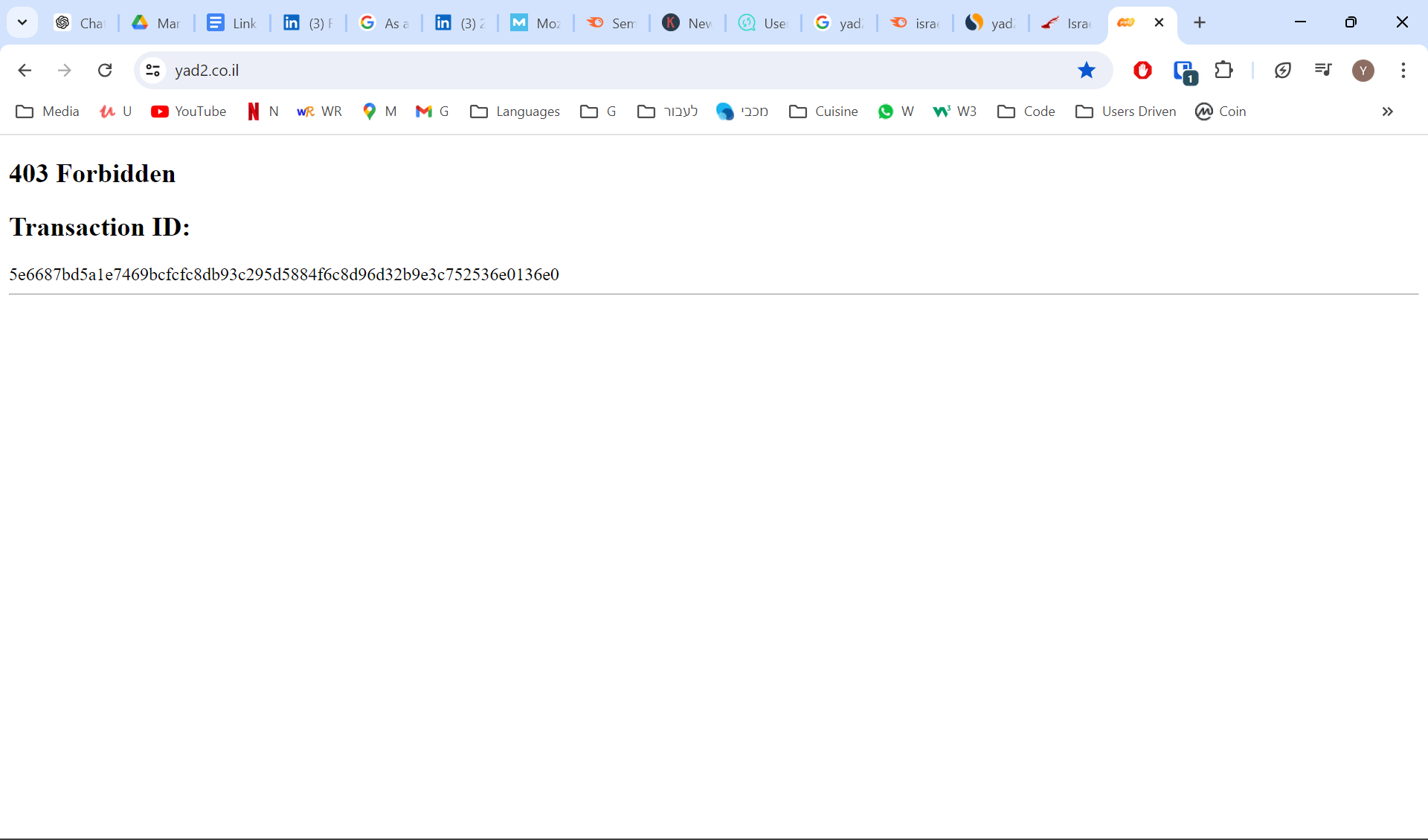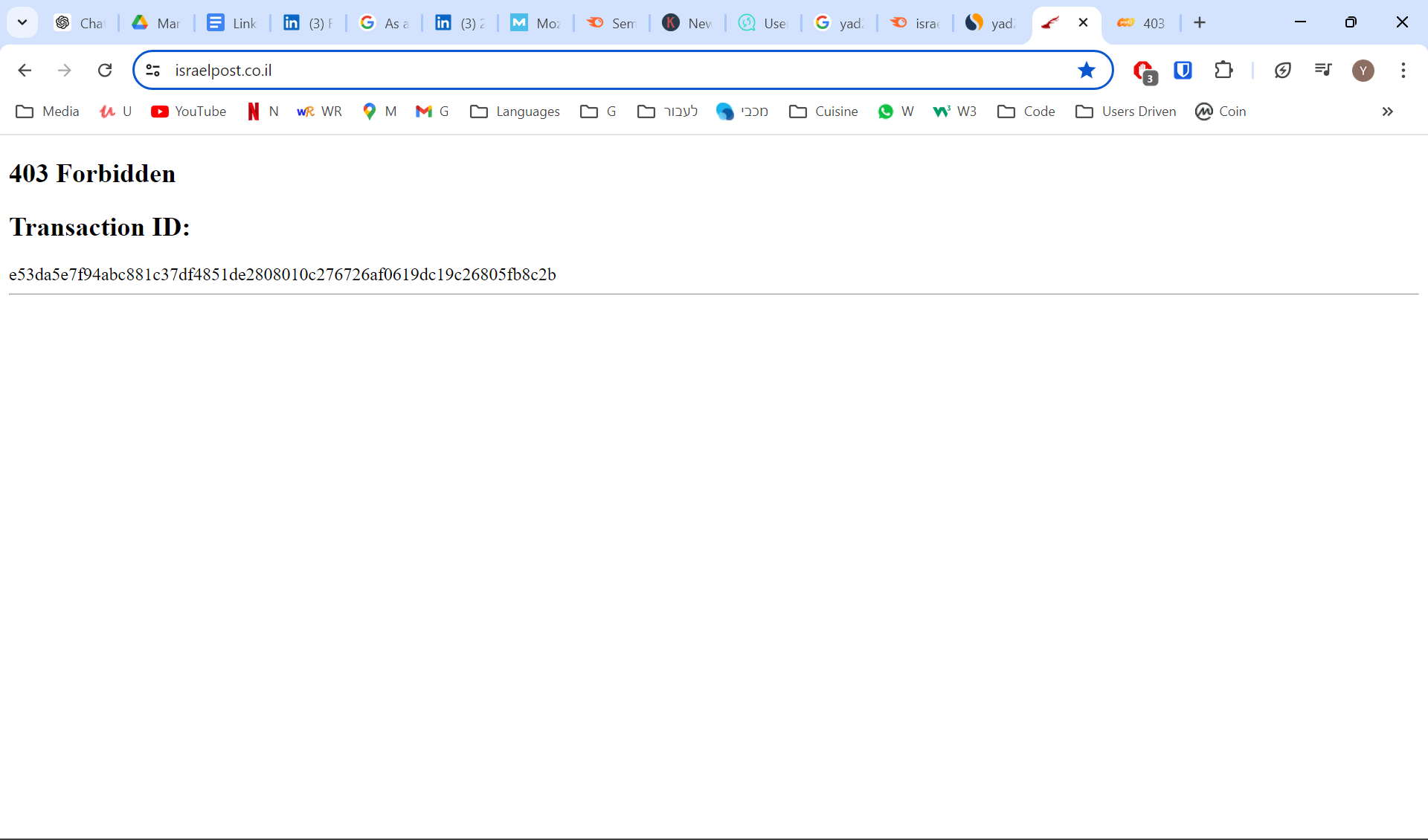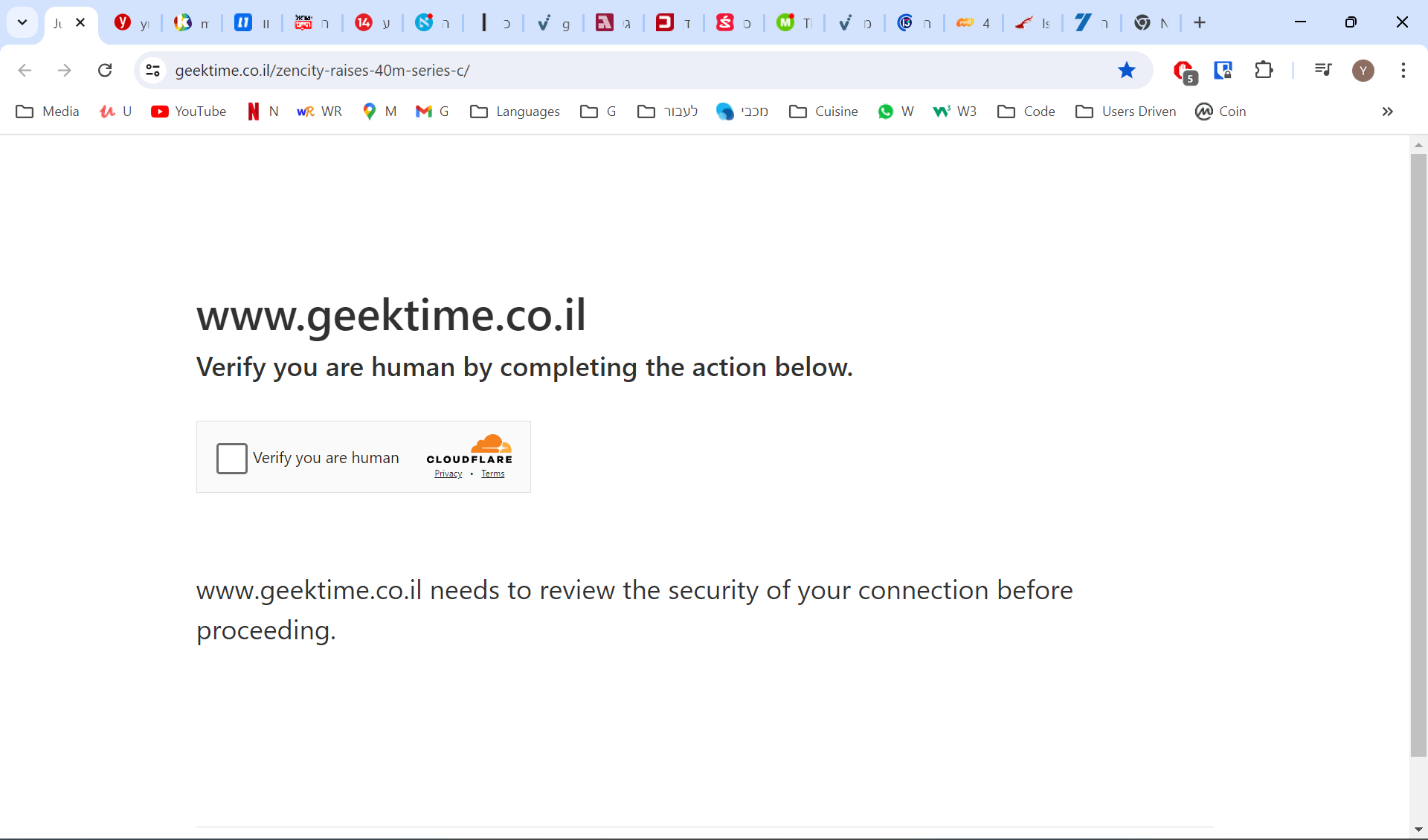Introduction
In light of recent events in Israel, many websites have taken measures to protect themselves from cyber attacks. Is the cyber protection method they chose is good, or is it driving away customers?
🛡️ Cybersecurity Measures Amidst the Israeli Conflict
The war in Israel has increased the potential of cyber attack threats, prompting websites to improve their defenses. A notable strategy is restricting access to users outside Israel to prevent Distributed Denial of Service (DDoS) attacks. While effective, this approach impacts accessibility, user experience and it results in probably losing millions of customers.
What Is a DDoS Cyber Attack?
A DDoS attack overwhelms a web server with massive internet traffic, causing it to slow down or become inaccessible. To safeguard against DDoS attacks, some Israeli websites restrict access to users outside of Israel. This move, while protective, has its pros and cons.
Pros:
- Enhanced security against external threats.
- Reduced risk of large-scale cyber attacks.
Cons:
- Legitimate users outside Israel are blocked.
- Potential increase in customer churn due to accessibility issues.
Real-World Examples
Two of the top 40 most visited websites in Israel (according to Similarweb) have implemented access restrictions for users outside of Israel:
- yad2.co.il - Israel's largest real estate & second-hand website.
- israelpost.co.il - The Israeli postal service website.
📊 Traffic Impact
Blocking all traffic may drop these websites' monthly visits and user engagement, particularly from those abroad. The Jewish diaspora is around 8 million (according to Wikipedia), with 1 million being Israelis (according to ynet.co.il). Many potential users are blocked from using these websites, including those within Israel that are using a VPN.
🌍 Alternative Solutions
Instead of blocking all external traffic, websites can consider these strategies:
- Rate Limiting: Controls user request rates.
- Web Application Firewalls (WAF): Filters and monitors HTTP traffic.
- Traffic Analysis and Filtering: Identifies and blocks malicious traffic while allowing legitimate users.
🔍 What Is a VPN?
A Virtual Private Network (VPN) allows users to create a secure connection to another network over the Internet. It shields your data and allows you to access content as if you were in a different location.
Personally I’m using NordVPN which is one of the leading VPN services in the industry. It allows me to surf the web as if I were on a different geographical region, by thus bypassing those websites traffic block, all the while remain secure, which is a specially important when connecting to public Wifis.
NordVPN could also be more Users Driven by performing one of these two improvements (the 2nd is more secure):
- Allow whitelisting websites to disable the VPN for specific traffic.
- Introduce an option to remember the last geographical choice server for a specific website.
That way there's a bypass through NordVPN and no need to rely on websites for correct implementation (although it is benefitial for them).
Join Us in Driving Innovation!
At Users Driven, we understand the importance of balancing cyber security and accessibility. By leveraging the right tools and strategies, businesses can protect themselves while ensuring a positive user experience.
#UsersDriven #CyberSecurity #VPN #CustomerChurn #UserExperience #Innovation
Evidences for blocking traffic from outside of Israel


Good implementation of geektime.co.il - first checks if the traffic is from a human

